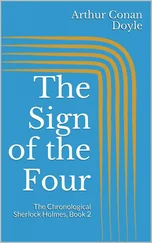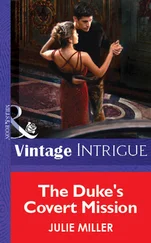Arthur Wellesley Wellington - The Letters of the Duke of Wellington to Miss J., 1834-1851
Здесь есть возможность читать онлайн «Arthur Wellesley Wellington - The Letters of the Duke of Wellington to Miss J., 1834-1851» — ознакомительный отрывок электронной книги совершенно бесплатно, а после прочтения отрывка купить полную версию. В некоторых случаях можно слушать аудио, скачать через торрент в формате fb2 и присутствует краткое содержание. Жанр: Биографии и Мемуары, foreign_antique, на английском языке. Описание произведения, (предисловие) а так же отзывы посетителей доступны на портале библиотеки ЛибКат.
- Название:The Letters of the Duke of Wellington to Miss J., 1834-1851
- Автор:
- Жанр:
- Год:неизвестен
- ISBN:нет данных
- Рейтинг книги:5 / 5. Голосов: 1
-
Избранное:Добавить в избранное
- Отзывы:
-
Ваша оценка:
- 100
- 1
- 2
- 3
- 4
- 5
The Letters of the Duke of Wellington to Miss J., 1834-1851: краткое содержание, описание и аннотация
Предлагаем к чтению аннотацию, описание, краткое содержание или предисловие (зависит от того, что написал сам автор книги «The Letters of the Duke of Wellington to Miss J., 1834-1851»). Если вы не нашли необходимую информацию о книге — напишите в комментариях, мы постараемся отыскать её.
The Letters of the Duke of Wellington to Miss J., 1834-1851 — читать онлайн ознакомительный отрывок
Ниже представлен текст книги, разбитый по страницам. Система сохранения места последней прочитанной страницы, позволяет с удобством читать онлайн бесплатно книгу «The Letters of the Duke of Wellington to Miss J., 1834-1851», без необходимости каждый раз заново искать на чём Вы остановились. Поставьте закладку, и сможете в любой момент перейти на страницу, на которой закончили чтение.
Интервал:
Закладка:
Duke of Wellington
The Letters of the Duke of Wellington to Miss J., 1834-1851 / Edited, with Extracts from the Diary of the Latter
PREFACE
The effort of the Editor throughout this volume has been to repress fancy rather than to exercise it. There has not been a word added to or taken from the letters of the Duke, even the occasional eccentricities of orthography and punctuation having been preserved.
The editing that was absolutely necessary to render coherent some of Miss J.'s lucubrations has been restricted to the excision of superfluous passages of Scripture that added nothing to the sense of the text, and the correction of the very erratic punctuation both of her diary and of the copies she has left of her own letters.
Miss J.'s copies of the Duke's epistles have been verified by comparison with the originals. In every case where the needful books and journals of reference were attainable, the Duke's statements in the letters of his comings and goings and occupations have been corroborated by contemporary data.
The particulars of Miss J.'s personal history have been derived from private family sources.
CHRISTINE TERHUNE HERRICK.Brooklyn, March 18, 1889.
CHAPTER I.
INTRODUCTION
These hitherto unpublished Letters from the Duke of Wellington to Miss J., and the Diary of the latter, have lain for years in a trunk in the attic of a country-house within thirty miles of New York city. Their publication is permitted through the kindness of a friend with whose family Miss J. was remotely connected. The facts with regard to Miss J.'s life and character have been in part obtained through those who knew her personally, but mainly through her own Diary,—a worn volume once handsome, that at the first glance would be taken for a Bible. This book is supplied with a spring-lock. Its hundreds of pages are closely covered with a minute handwriting, and the ink with which they were traced has faded to a yellowish brown, indistinct in places, but never quite undecipherable. The Duke's letters are written in a peculiar, irregular hand, very difficult to read, and becoming more crabbed as he advanced in years. While the spelling is almost invariably correct, the construction of the sentences is often involved, and the punctuation follows no known method.
At the time Miss J.'s correspondence with the Duke of Wellington opened, she was a very beautiful woman about twenty years of age. Her parents were from among the smaller English gentry, and in her girlhood she, with her elder sister, attended one of the best schools in England. Many of her companions were of noble birth, and the associations then formed were continued in later years. Miss J.'s father died while she was little more than a child, and not long after the mother followed. At her death the daughter writes that a vision was vouchsafed to her of the heaven her mother was entering.
The elder sister married an American physician and came with him to this country, leaving Miss J. with a companion and in the nominal care of her guardian, who seems to have confined himself to supplying her with the funds accruing from the investments made of the property left by her mother. Miss J. lived now in lodgings, now in a rented house, in company with a devoted elderly friend to whom she constantly alludes in her Diary, and made many visits to the country-houses of former schoolmates. She appears never to have had any taste for general society. A woman of deeply devotional nature, her fervor in spiritual matters had been heightened by associations into which she had been thrown soon after quitting school, and further strengthened by the example and precepts of her bosom companion, Mrs. L. But while the latter evidently possessed strong common-sense and a well-balanced mind, Miss J. was impulsive, enthusiastic, undisciplined. Whatever she did was done with all her might. In her sight there could be no middle course, no half-way measures. By much introspection and pondering of the Scriptures she developed into a religious zealot, fanatically anxious for the conversion of those about her. And this conversion was in her mind nothing less than the turning aside from all worldly pursuits, and the entire dedication of time and self to religious avocations. She shrank with horror from what she called "The World," and interpreted this to mean public offices, wealth, and honors conferred by the State. All these she considered as snares to draw the soul from the contemplation of God and eternity, and bind it down to the things of time and sense.
While little more than a girl, she had had a love-affair with a young man, of whom she writes as "Henry," or "H." Although attached to him, he fell short of her standard in matters spiritual, and she therefore gave him up. She describes with feeling her deep anxiety for his salvation, the prayers she offered for him, and her trembling hope that he might become converted and they might yet be happy together. As the young man still clung to "The World," she nerved herself to break the bond between them and to crush down her affection for him. For a while she seemed to succeed; but the victory over herself was not complete. In her Diary she writes:—
"A few days ago, while Mary was at the harp, in a moment a feeling of tenderness seemed to return towards H.; but I could not certainly say it was so until two days after, when Mary returned from her visit and alluded to him, adding she had looked at Selby and prayed it may become an abode of righteousness , or words to this effect,—when I was at once overcome, and burst into tears. This, indeed, verified my suspicion; and what could I say to such things but this: 'Thy will, O God, be done!'"
Resolved that she would not let her mind dwell upon one who had "never known a new birth unto righteousness ," she devoted herself to good works, to instructing the school-children in the village, visiting the poor and afflicted, teaching two gypsy boys, in whom she was much interested, to read and to pray, writing letters on religious topics to her friends, and adapting hymns for the harp. She was an earnest student of the Bible, and held firm faith in the doctrine that even the most trivial events in one's life are directed by an overruling Providence. She carried this belief so far that when in doubt as to what to do in any matter, she would open her Bible at random, read the first text that caught her eye, and shape her course by the direction she found there.
That her friends deprecated such fanaticism—for it really amounted to that—in so young and beautiful a girl, is apparent from passages in her Diary, where she states, with evident enjoyment, that she had undergone "persecution for righteousness' sake," and laments that certain friends should so evidently be "laboring under the power of Satan."
During the month of June, 1833, while staying with a friend, of whom she speaks as "Mary," in the village of S., intelligence was brought to Miss J. of a hardened criminal who was confined in the county jail. He had been convicted of murder, and was to be executed shortly. Both Catholic and Protestant clergymen had been with him, and had endeavored in vain to make some impression upon him by prayers and exhortation. Here was Miss J.'s opportunity. She and her friend Mary went to the prisoner, and by their ministrations produced such an effect that he made full confession of his guilt and professed repentance and conversion. In her Diary Miss J. tells how she dreaded her first expedition to the jail, the prayers she uttered for strength, and the direct answers she received. Of a later visit to "poor Cook" she writes:
"Oh, what a glorious change was there! The stony heart become a heart of flesh! Great God, thy mercies are indeed infinite, and thy ways past finding out!" A few days later she says: "Went again to S.; found poor Cook rapidly ripening for that eternal kingdom into which through his Saviour's righteousness he will soon be gloriously received."
Читать дальшеИнтервал:
Закладка:
Похожие книги на «The Letters of the Duke of Wellington to Miss J., 1834-1851»
Представляем Вашему вниманию похожие книги на «The Letters of the Duke of Wellington to Miss J., 1834-1851» списком для выбора. Мы отобрали схожую по названию и смыслу литературу в надежде предоставить читателям больше вариантов отыскать новые, интересные, ещё непрочитанные произведения.
Обсуждение, отзывы о книге «The Letters of the Duke of Wellington to Miss J., 1834-1851» и просто собственные мнения читателей. Оставьте ваши комментарии, напишите, что Вы думаете о произведении, его смысле или главных героях. Укажите что конкретно понравилось, а что нет, и почему Вы так считаете.












